Disclosure: This article contains affiliate links. We may earn a commission from purchases at no extra cost to you, which helps our travel content.
Standing in the bustling Grand Marché of Yamoussoukro with my son Mateo clutching my hand, I was instantly transported back to those childhood mercados my abuela introduced me to decades ago. The vibrant fabrics, aromatic spices, and melodic conversations in French and Baoulé created a sensory symphony that reminded me why we travel: to find the familiar in the unfamiliar. Yamoussoukro may be known for housing the world's largest basilica, but the soul of Côte d'Ivoire's capital lies in its markets, traditions, and the warm smiles of its people.
The Basilica and Beyond: Finding Balance in Yamoussoukro
Let's address the elephant in the room—or rather, the massive basilica. The Basilica of Our Lady of Peace stands as a testament to architectural grandeur, its dome soaring higher than St. Peter's in Vatican City. While it's undeniably impressive and worth visiting (preferably early morning to avoid both crowds and heat), spending your entire Yamoussoukro journey here would be like visiting Paris and only seeing the Eiffel Tower.
After our basilica visit, we ventured into the Foundation Félix Houphouët-Boigny, which offers fascinating insights into Côte d'Ivoire's first president. The adjacent peace park provided a welcome respite where Mateo could run around while my husband and I planned our cultural itinerary. I found myself grateful for my moisture-wicking hat, which kept the intense West African sun at bay while we explored the expansive grounds.
What truly captivated us, however, were the smaller, less touristed sacred sites scattered throughout the city. Local guides—easily arranged through your accommodation—can provide access to traditional Baoulé religious ceremonies that offer a window into pre-colonial spiritual practices that continue to thrive alongside Christianity and Islam.
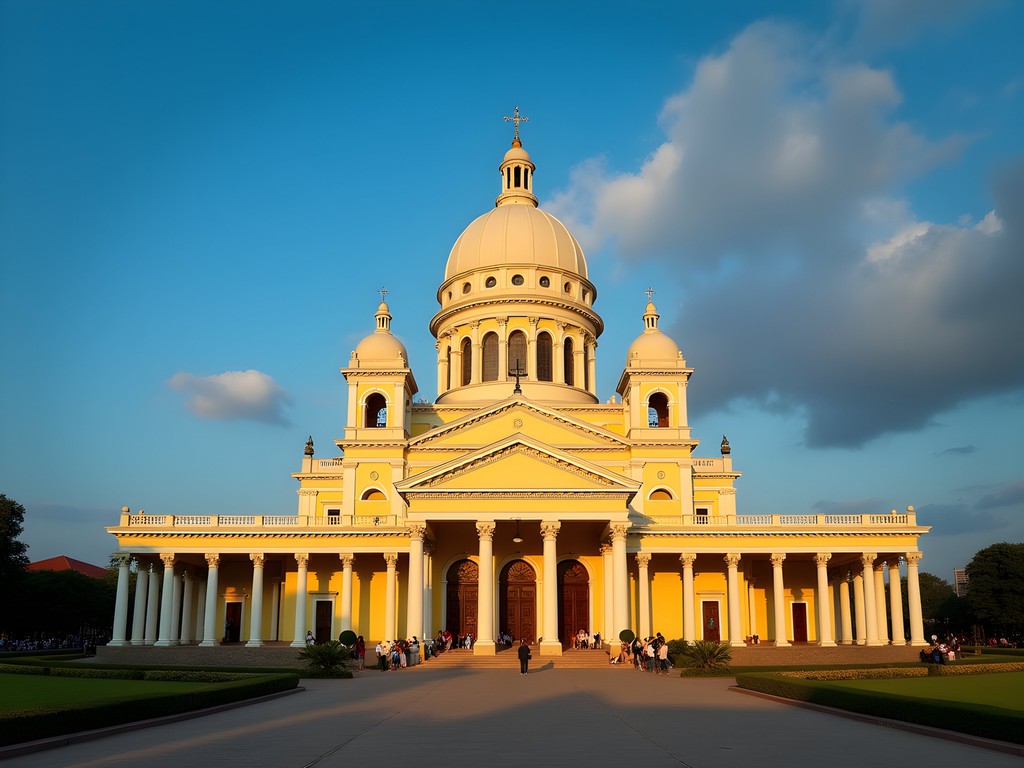
💡 Pro Tips
- Visit the basilica early (8-9am) for cooler temperatures and better lighting for photos
- Hire a local guide through your hotel for access to traditional ceremonies
- Bring small denominations of West African CFA francs for market purchases and donations at religious sites
Market Immersion: From Farm to Family Table
If you've followed my blog, you know markets are my love language. Yamoussoukro's Grand Marché didn't disappoint, offering a kaleidoscope of local produce, handcrafts, and daily life that had me filling my foldable market tote with treasures within minutes.
We started our market exploration with empty stomachs and curious palates. Food vendors prepare traditional dishes right before your eyes—the aroma of attieké (fermented cassava) with grilled fish and the sweet scent of freshly fried alloco (plantains) guided us through narrow passages between stalls. Mateo, typically hesitant with new foods, surprised us by requesting seconds of the spiced rice and vegetables wrapped in banana leaves.
Beyond food, the textile section showcased vibrant wax prints that tell stories through their patterns. After admiring a particularly striking indigo design, the vendor, Madame Koné, explained it represented wisdom and prosperity. I couldn't resist purchasing several yards, which now grace our dining room as curtains—a daily reminder of our Yamoussoukro journey.
For those interested in cooking local dishes at home, I arranged a market-to-table cooking class through our guesthouse. Our instructor, Aya, patiently taught us to prepare foutou (pounded yam) and sauce graine (palm nut sauce)—techniques I've since recreated in our Salt Lake City kitchen, much to my family's delight.
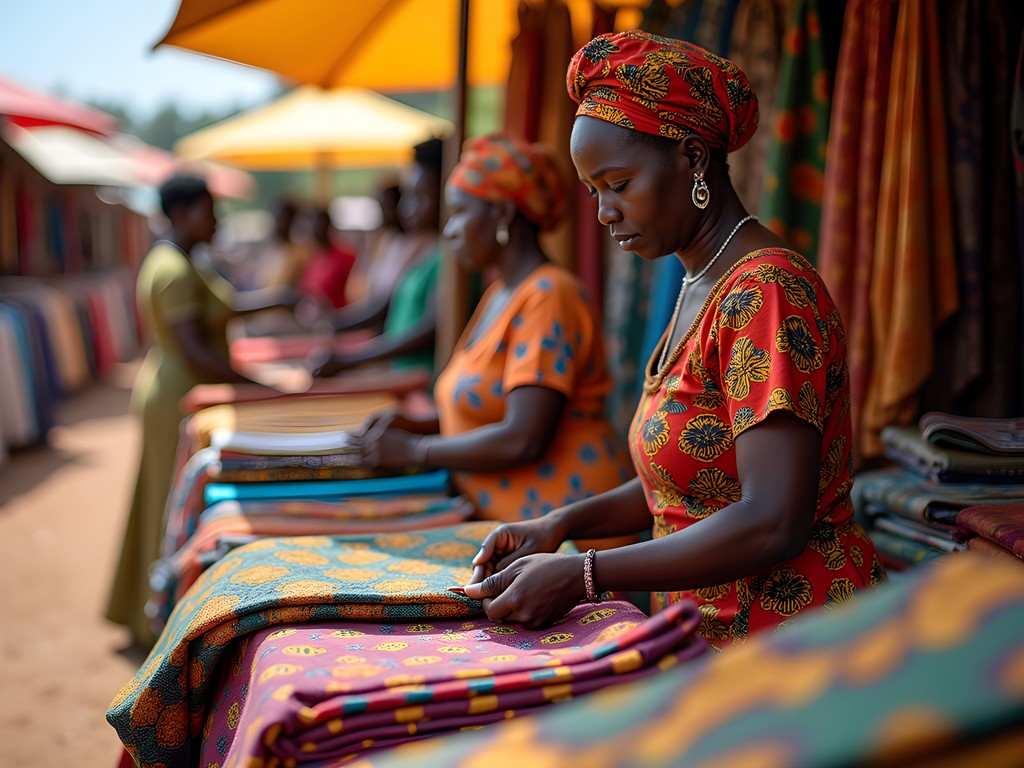
💡 Pro Tips
- Visit markets early morning (6-8am) when produce is freshest and temperatures cooler
- Ask permission before photographing vendors or their goods
- Look for cooking classes through local guesthouses—most aren't advertised online but can be arranged on arrival
Literary Yamoussoukro: Finding Stories in Unexpected Places
While Yamoussoukro doesn't boast the bookstore culture I typically seek out in my travels, this challenge led to one of our most rewarding experiences. After mentioning my love of literature to our guesthouse host, she connected us with Professor Kouassi, a literature professor at the local university.
Armed with my travel translator device to help with nuanced conversation, we spent an afternoon in his modest home library, discussing Ivorian authors like Ahmadou Kourouma and Véronique Tadjo. The professor generously gifted us several French-language novels that now occupy a special shelf in our home collection.
For fellow bibliophiles, I recommend visiting the Foundation Félix Houphouët-Boigny's documentation center, which houses historical texts and contemporary works. While not a traditional bookstore experience, the center welcomes visitors interested in Ivorian literature and history.
Another literary surprise came at the weekly storytelling circle in Assabou village, just outside the city center. Every Thursday evening, elders gather to share traditional Baoulé tales under a massive kapok tree. Though primarily in local languages, many stories were translated, allowing us to glimpse the oral tradition that predates written literature in the region. Mateo was mesmerized by tales of clever animals and ancestral wisdom—proof that great storytelling transcends language barriers.
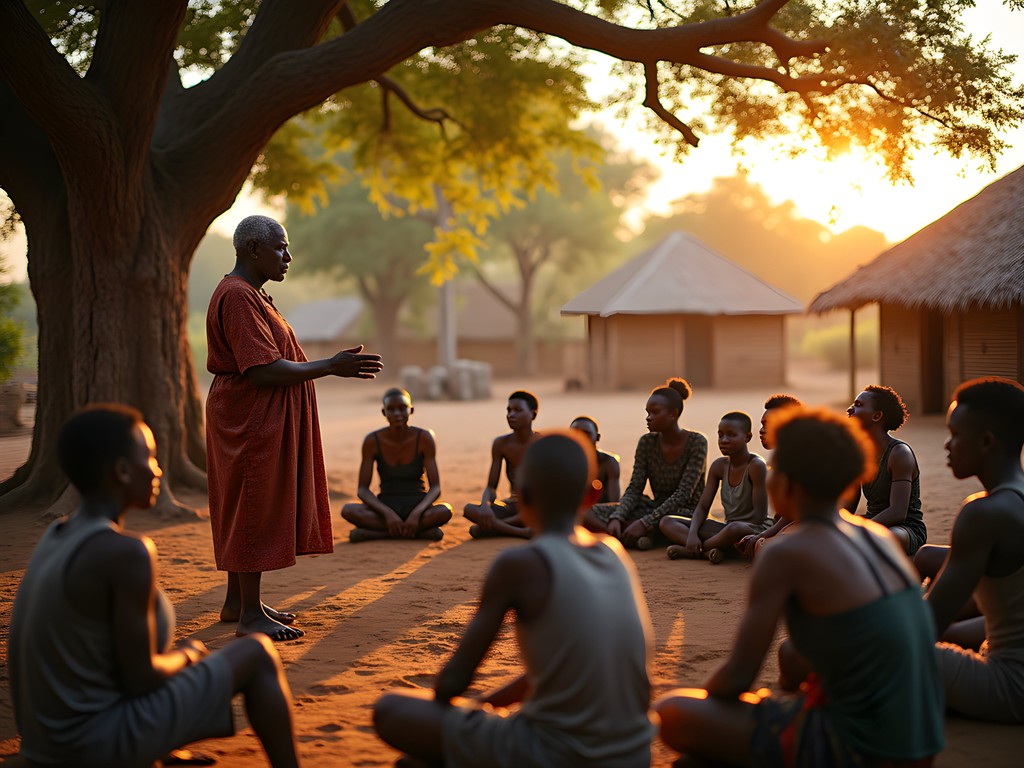
💡 Pro Tips
- Contact university departments ahead of your visit if you're interested in specific cultural aspects
- Bring books to donate to local schools or libraries—English language materials are especially appreciated
- Download French-Baoulé translation apps before arrival as internet connectivity can be spotty
Family-Friendly Cultural Experiences
Traveling with a child in West Africa requires thoughtful planning but rewards with rich cultural exchanges. Yamoussoukro proved surprisingly accommodating for family travel, with locals often going out of their way to ensure Mateo felt welcome and engaged.
The Crocodile Lake at the presidential palace grounds became an unexpected highlight of our trip. Dozens of sacred crocodiles bask along the shores, creating both fascination and slight trepidation for our nine-year-old. The palace guards, noting Mateo's interest, shared stories about how these reptiles are believed to embody ancestral spirits. I was grateful for our compact water filter during these longer excursions, as it allowed us to safely refill our bottles from any water source without contributing to plastic waste.
For hands-on cultural experiences, we arranged a drumming workshop through our accommodation. The three-hour session with master drummer Koffi had us all attempting (with varying degrees of success) to learn traditional rhythms. The genuine patience shown toward Mateo's enthusiastic but arrhythmic efforts epitomized the warmth we encountered throughout our stay.
Another family favorite was our visit to the Centre Artisanal, where artisans create intricate wood carvings, jewelry, and textiles. Many craftspeople invited Mateo to try simple techniques, creating meaningful souvenirs far more valuable than anything we could have purchased pre-made. His proudly imperfect wooden elephant now holds a place of honor on his bookshelf.
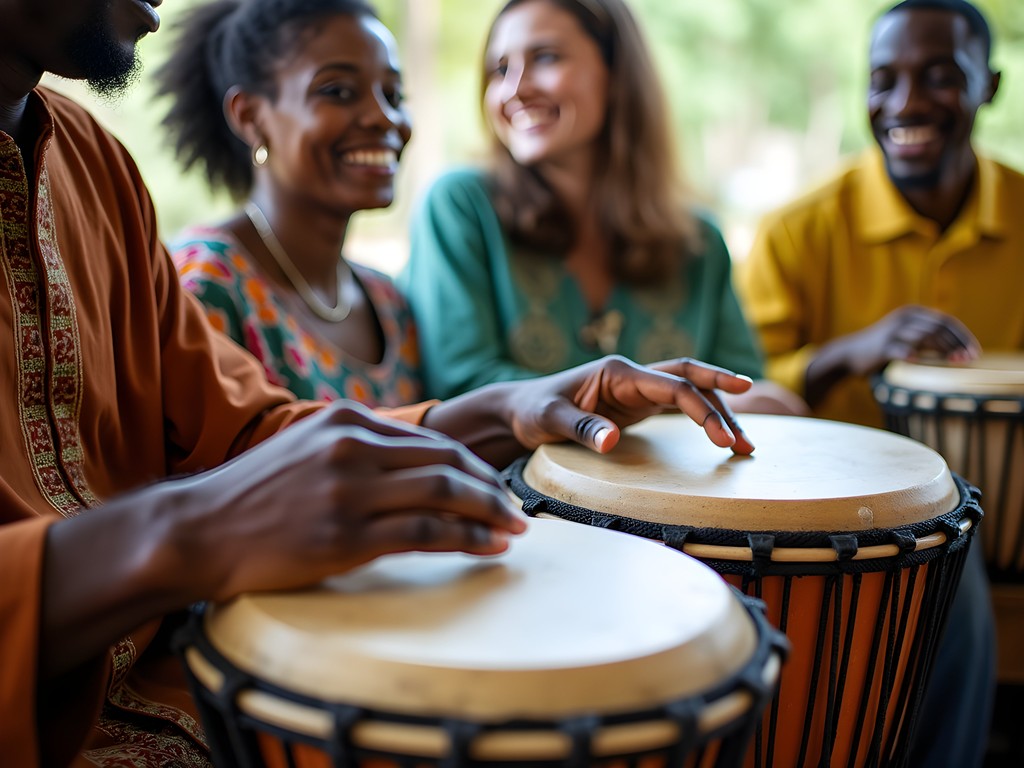
💡 Pro Tips
- Pack a basic first aid kit with children's medications as specific brands may be unavailable locally
- Schedule rest days between major activities—West African heat can be especially draining for children
- Bring small gifts like stickers or school supplies for children you meet, but always ask parents' permission before giving anything
Sustainable Tourism in Yamoussoukro
Traveling responsibly in Yamoussoukro requires awareness of both environmental and cultural impacts. While the city's infrastructure has improved significantly in recent years, sustainable practices aren't always prioritized in the tourism sector.
We chose to stay at Auberge Les Jardins, a locally-owned guesthouse that employs staff from surrounding villages and sources food from nearby farms. Their solar water heating system and rainwater collection impressed me—small but meaningful steps toward sustainability in a region where eco-consciousness is still developing.
For day trips, we hired the same driver throughout our stay rather than using different taxis. This not only created consistency but ensured fair compensation for Monsieur Bamba, who became an invaluable cultural interpreter. Having reliable transportation allowed us to explore remote villages where we used our portable solar charger to keep devices powered during full-day excursions.
Water conservation is critical in Yamoussoukro, especially during the dry season. We packed dry shampoo to reduce water usage and brought reusable water bottles with built-in filters. These small choices helped minimize our footprint while modeling responsible tourism for Mateo.
Perhaps most importantly, we prioritized businesses that reinvest in local communities. From choosing restaurants owned by local families to purchasing crafts directly from artisans, these decisions help ensure tourism benefits extend beyond international hotel chains.
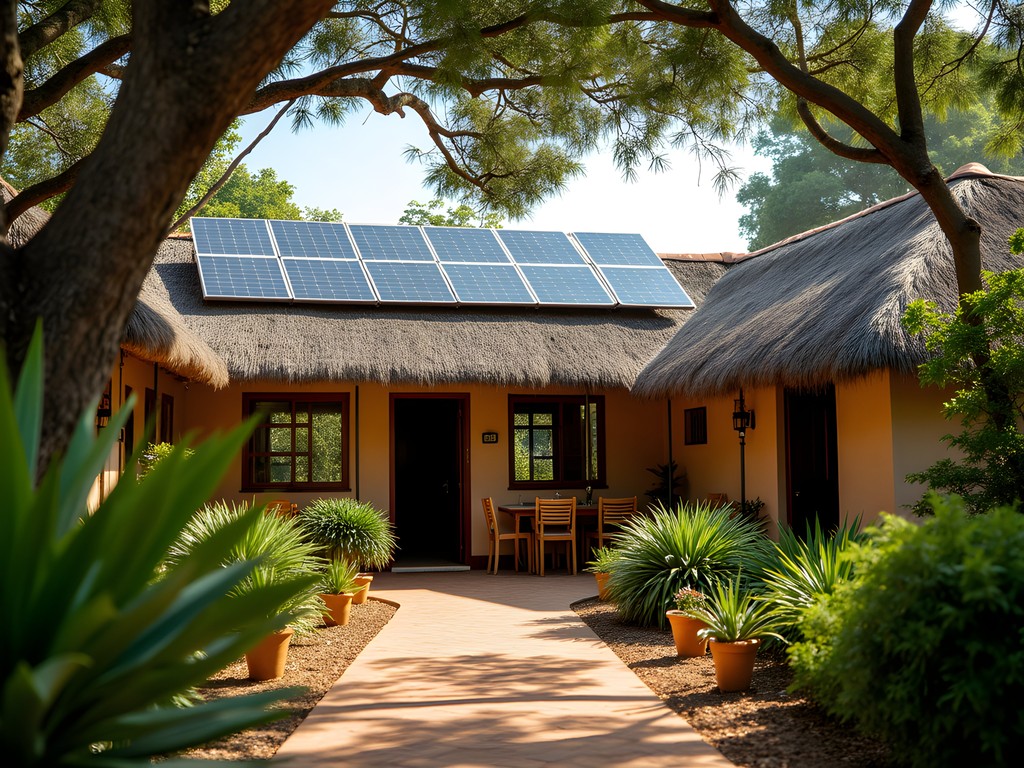
💡 Pro Tips
- Research accommodations that employ sustainable practices—even simple measures like solar water heating make a difference
- Carry reusable bags for shopping and decline plastic bags when possible
- Consider carbon offsetting your flights through verified programs that support West African conservation efforts
Final Thoughts
As our week in Yamoussoukro drew to a close, I found myself mentally cataloging the experiences that would remain with us long after our return to Salt Lake City. The basilica, impressive as it is, had become merely the backdrop to more intimate cultural encounters—impromptu dance lessons from children in Assabou village, the taste of freshly pressed ginger juice from Madame Koné's market stall, and the pride in Mateo's eyes as he successfully communicated in his limited French.
Yamoussoukro demands more from travelers than many destinations—more patience, more cultural sensitivity, more willingness to step outside familiar comforts. Yet it returns these investments tenfold in authentic connections and perspectives that transform how we see the world.
As we packed our suitcases, now containing fabric for my mother and carved masks for my sister's collection, I realized that Yamoussoukro had given us exactly what I seek in every journey: not just photographs and souvenirs, but stories to carry forward and share. In a world increasingly defined by digital connections, these tangible cultural exchanges remind us why we cross oceans and continents—to find the common threads that connect our human experience across seemingly vast divides.
✨ Key Takeaways
- Look beyond the famous basilica to discover Yamoussoukro's rich cultural tapestry in markets, villages, and community gatherings
- Engaging with local guides and families provides deeper understanding than any guidebook or tour
- Family travel to less-visited destinations creates unique learning opportunities for children and meaningful cross-cultural connections
- Supporting locally-owned businesses and sustainable practices helps ensure tourism benefits local communities
📋 Practical Information
Best Time to Visit
November through February (dry season)
Budget Estimate
$75-150 per day per person including accommodation, food, transportation and activities
Recommended Duration
5-7 days
Difficulty Level
Challenging
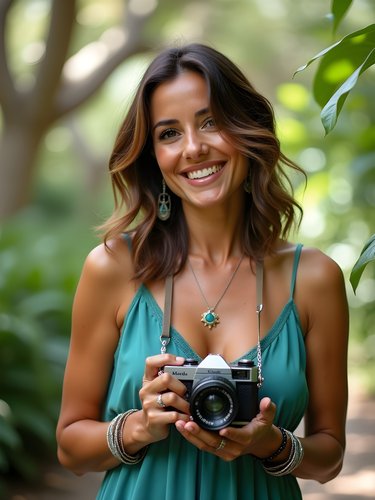
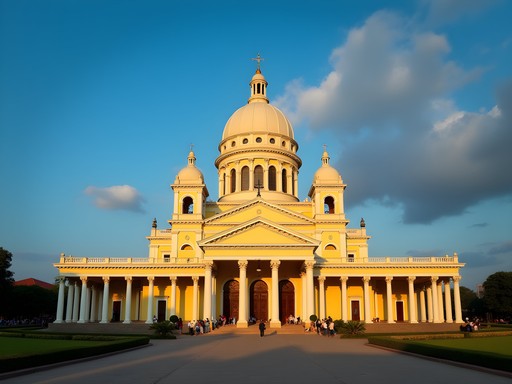
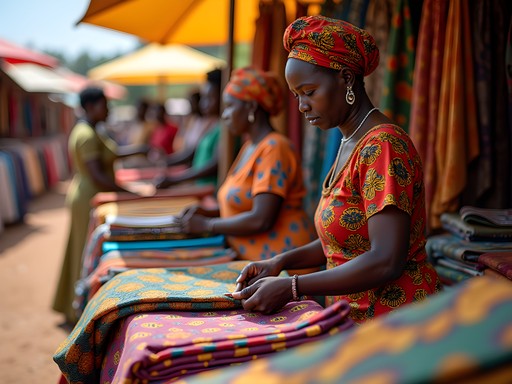
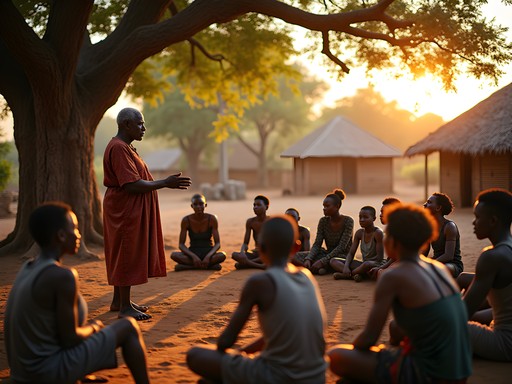
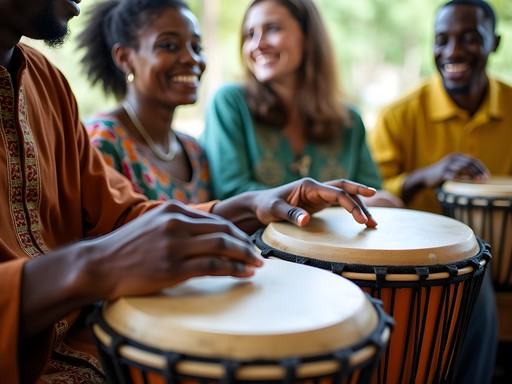
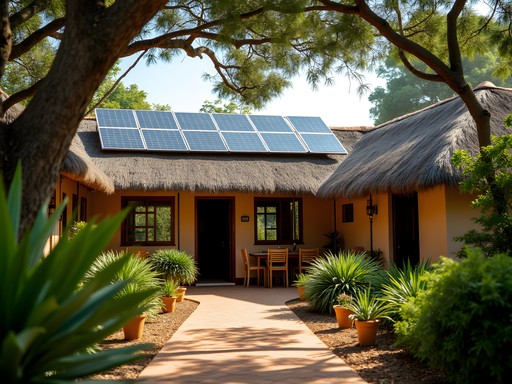


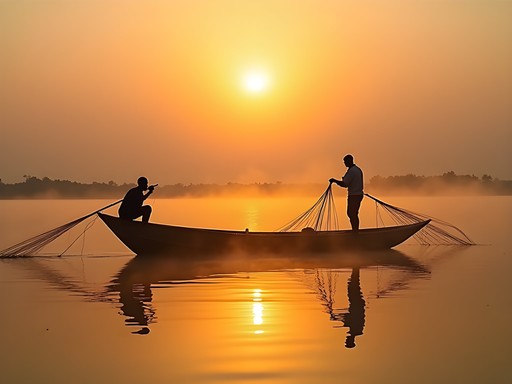
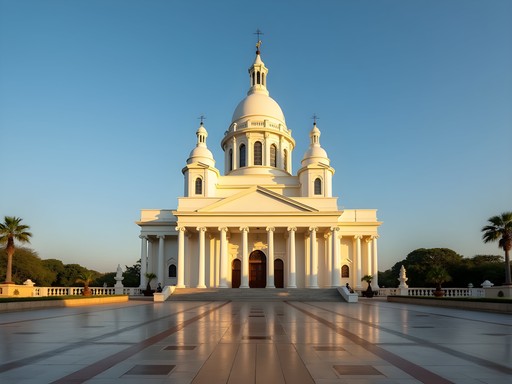
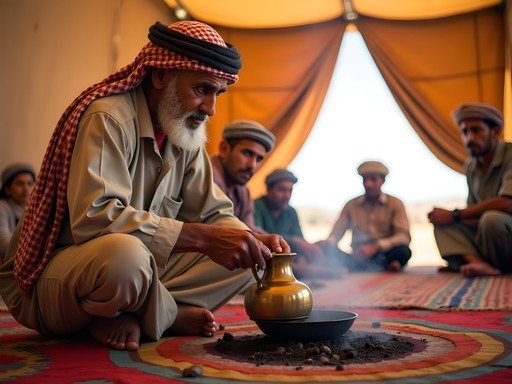
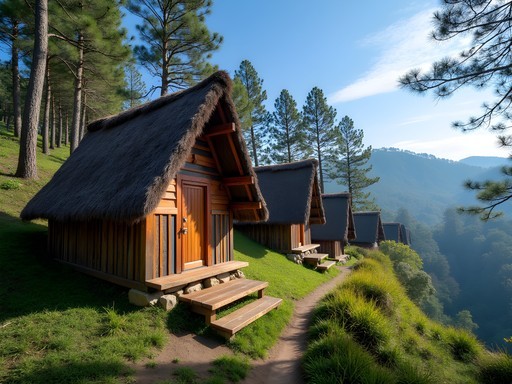
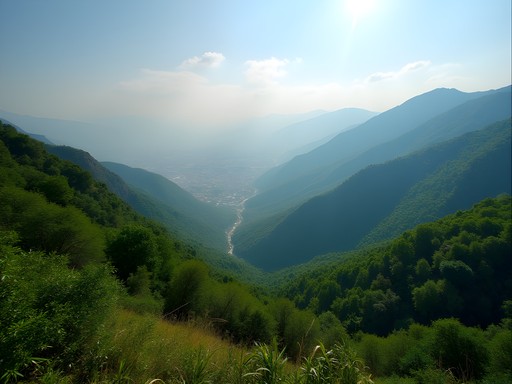
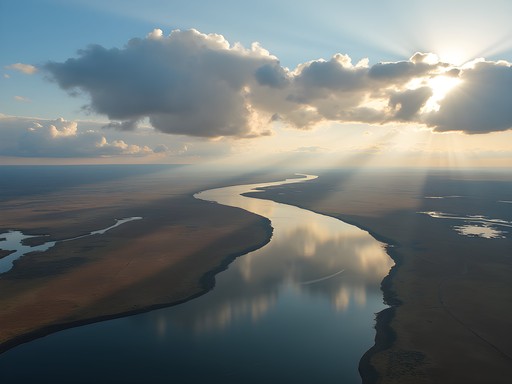
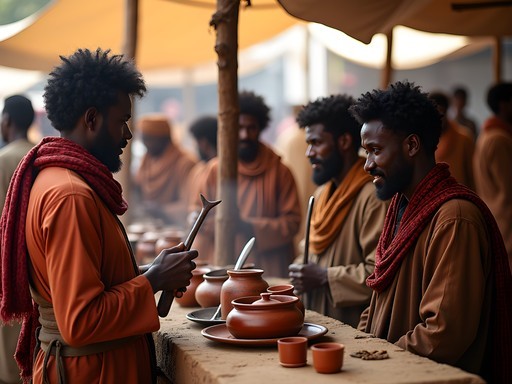
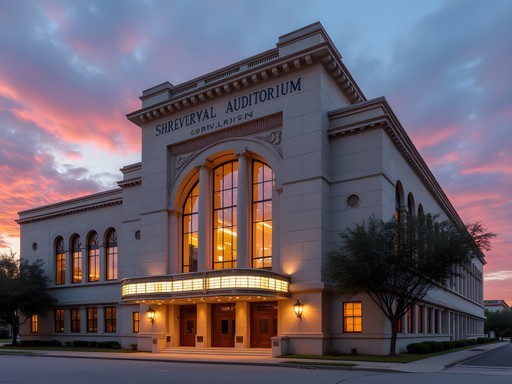
Comments
Fatima Sims
Jean, this really resonates! I visited Yamoussoukro last year and completely agree about getting beyond the Basilica. The market was definitely a highlight for me too. I spent an entire morning just watching the fabric vendors and ended up buying way too much wax print fabric that I still haven't figured out what to do with! Did you get a chance to visit any of the surrounding villages? I found a women's cooperative about 20km outside the city that does incredible pottery work - totally off the beaten path but so worth it. Also curious how Mateo handled the heat? I was there in March and it was pretty intense.
wanderbackpacker
ooh which month did you go? trying to time it right
Fatima Sims
I was there mid-March. Hot but not unbearable. November to February is supposed to be cooler though!
wanderbackpacker
How many days would you recommend staying? Planning a trip with my partner and trying to figure out if 3 days is enough or if we should do longer?
dreamone
not the author but i did 4 days and it felt perfect
wanderbackpacker
thanks! that helps
dreamone
Love this! The market sounds amazing
Hunter Thompson
Just got back from Yamoussoukro last week and wish I'd read this before going! The basilica was on my list but I totally underestimated how much else there is to see. The crocodile lake was a highlight for me - watching the feeding time was mental! One tip for anyone heading there: the local shared taxis (woro-woros) are super cheap but I found them confusing at first. Ended up making friends with a local university student who showed me how the routes work. Also, the Foundation Félix Houphouët-Boigny is worth checking out if you're into political history. Jean - did you try the attieke with grilled fish? Became my go-to meal there!
vacationrider
Those woro-woros are an adventure in themselves! Got lost twice but ended up discovering a small art gallery because of it.
nomadstar
OMG just booked my tickets to Côte d'Ivoire for next month!!! This post couldn't have come at a better time! Those market photos are EVERYTHING! Can't wait to experience it myself!
escapenomad
Any safety concerns traveling with family? Been wanting to visit but keep hearing mixed things.
Jean Ward
We felt quite safe in Yamoussoukro itself. Like anywhere, just use common sense - don't flash valuables, be aware of your surroundings. The hotel staff were super helpful with advice on which areas to visit. Definitely arrange transportation through your hotel when possible!
Bryce Diaz
Jean, your section on 'Literary Yamoussoukro' was something I've never seen covered before! During my visit last month, I completely missed the bookshops you mentioned. I spent three days there and thought I'd seen everything, but clearly not. The basilica is magnificent (and yes, so empty compared to European counterparts), but I agree that the real magic happens in those markets and side streets. I found this incredible craftsman making wooden sculptures near the Hotel des Parlementaires who told me he'd been doing it for 40+ years. Did you happen to visit the presidential palace grounds? The guides there shared some fascinating political history that isn't in any of my travel guide. Definitely planning a return visit to check out those bookshops!
tripmaster
How many days would you recommend for Yamoussoukro? Is it worth staying there or better as a day trip from Abidjan?
moonqueen
I've been wanting to visit Côte d'Ivoire but wasn't sure about bringing kids. How did Mateo handle the heat? And were there enough activities to keep him engaged?
Jean Ward
The heat was definitely something to plan around! We did most of our exploring in the mornings, then had hotel pool time in the afternoon heat. Mateo loved the markets and especially the crocodile lake (Lac aux Caïmans) - though keep a very close eye on little ones there!
moonqueen
Thanks for the tips! Crocodile lake sounds exciting (and a bit scary). Adding it to our list!
wavemaster
Stunning photos of the basilica! Those columns are incredible.
Venture X
Premium card with 2X miles, $300 travel credit, Priority Pass